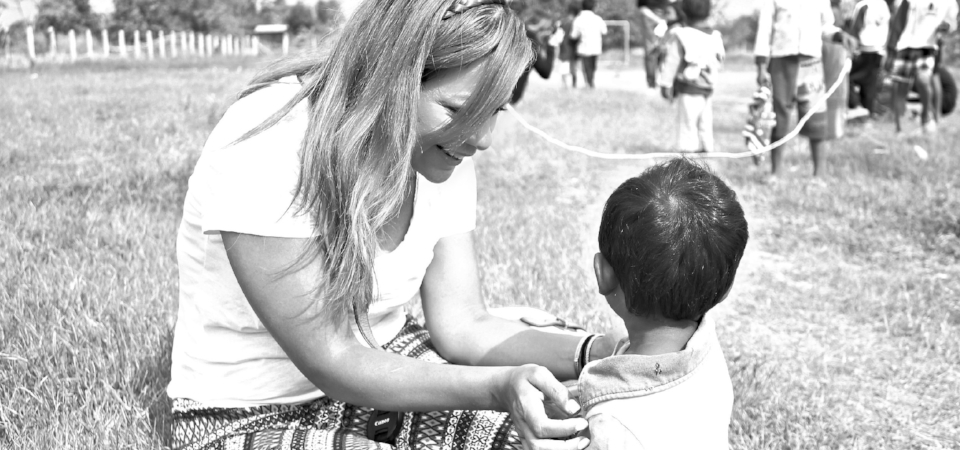Four Steps to Find YOUR Mission
When my husband and I met, we both lived in California. At the time, I had just finished an enlistment with the U.S. Navy and had returned to the civilian workforce.
Life began to change rapidly after we started dating. Soon came our engagement and a deployment for him. Upon his homecoming, we had our wedding, followed by our first set of orders as a family to Okinawa, Japan.
Though excited and intrigued about the small South Pacific Island, deemed the “happiest place on earth,” I was confronted with the need for self-fulfillment outside the role of military spouse. I knew that finding a job within my line of expertise would be challenging, and it was critical to maintain focus and open-mindedness.
As military spouses, we may have to endure many challenges, some of which include separation, readjustment, loss, loneliness, and relocation, amongst others. Many of us use coping mechanisms through these trial periods to manage anxiety and/or prevent emotional distress. One of the secrets to achieving a successful lifestyle as a military spouse is identifying your mission, particularly during the long phase of life while the service member’s job may take priority. Here are four steps you can use to find YOUR mission:
1. Find Something to Love about Your New Duty Station
It is fair to compare official orders to gambling -- sometimes you win, and sometimes you lose. Nevertheless, regardless of what your following destination is, conduct research and explore your options (whether familiar or outside your comfort zone). It is paramount to find enjoyable and exciting activities you love, explore your surroundings, contribute to the community, and become an asset within your new duty station.
Since childhood, I have been passionate about traveling and experiencing cultural diversity, which made living in Asia an invaluable opportunity. I knew that I would be able to explore with a purpose, which to me, is the most rewarding way to travel. Okinawa became home to us rather quickly, with its turquoise waters, savory foods, friendly locals, and one of the highest numbers of centennials in the world.
2. Discover Your Strengths
Strength Finder 2.0 by Tom Rath, was recommended as part of InDependent’s The MilSpo’s Guide to Self-Care. In her blog post introducing the topic, Katie Christy wrote:
• People who focus on their strengths are three times as likely to report having an excellent quality of life.
• People who focus on using their strengths are six times as likely to be engaged with their relationships, their jobs, and their communities.
• People who use their strengths every day are 7.8% more productive.
While finding a job within my line of expertise was challenging, self-awareness and personal adaptability were a couple of my strengths that led to invaluable opportunities. I became an English teacher to locals, served at a children’s orphanage, and dove into Okinawan customs without hesitation. In a blink of an eye, my agenda was bursting with commitments.
3. Get Involved
A new duty station can seem intimidating at first (especially those overseas), and as a result, your natural coping mechanisms could be avoidance or withdrawal. Fight the urge to stay within the comfort of familiarity and get involved. Volunteer your time and energy to a cause you care about. Volunteering will allow you to overcome your fears and use your strengths to mentor others in or beyond your community.
Through my work at the orphanage, I was introduced to a non-profit organization operating at a minefield village in Cambodia, as well as other projects in Thailand and Burma. Their efforts revolve around building community, empowering women, and creating job development opportunities for locals to avoid trading their own children to human/sex trafficking. I embarked on my first trip to Cambodia in 2012, and have not stopped going back.
4. Put Your Interests and Strengths to Work
Once you have realized that your new duty station is surprisingly appealing, discovered your strengths, and found ways to get involved in your community, you may have the need or desire to seek more substantial, or compensated work. Be confident and passionate about your beliefs. This practice could be the catalyst to the start of your own business or organization.
It was during one of those mission trips to Cambodia that I had a sudden revelation that intertwined some of my life’s fondest passions such as photography, traveling, and helping the poor. The concept of SnapHope.org was born. SnapHope is a non-profit organization with a focus on exposing the orphaned and the poor around the world through the art of journalistic photography.
Our current project is in my native country, Peru. Belen is a small community in Southern Peru that was created after a landslide forced all villagers to relocate from their previous hometown. It lacks ALL primary necessities, but we are in the process of changing that.
Establishing SnapHope has been, and continues to be, a challenging process. While attempting to achieve an unfamiliar goal can be frightening, once conquered, the gratification is immeasurable. Through this quest I have uncovered a new sense of purpose, joined a community of remarkable world changers, strengthened my faith, and I am more aware of those who need help and hope. I have found MY mission.
How have you put your strengths to work while living a military lifestyle? What is your mission?

